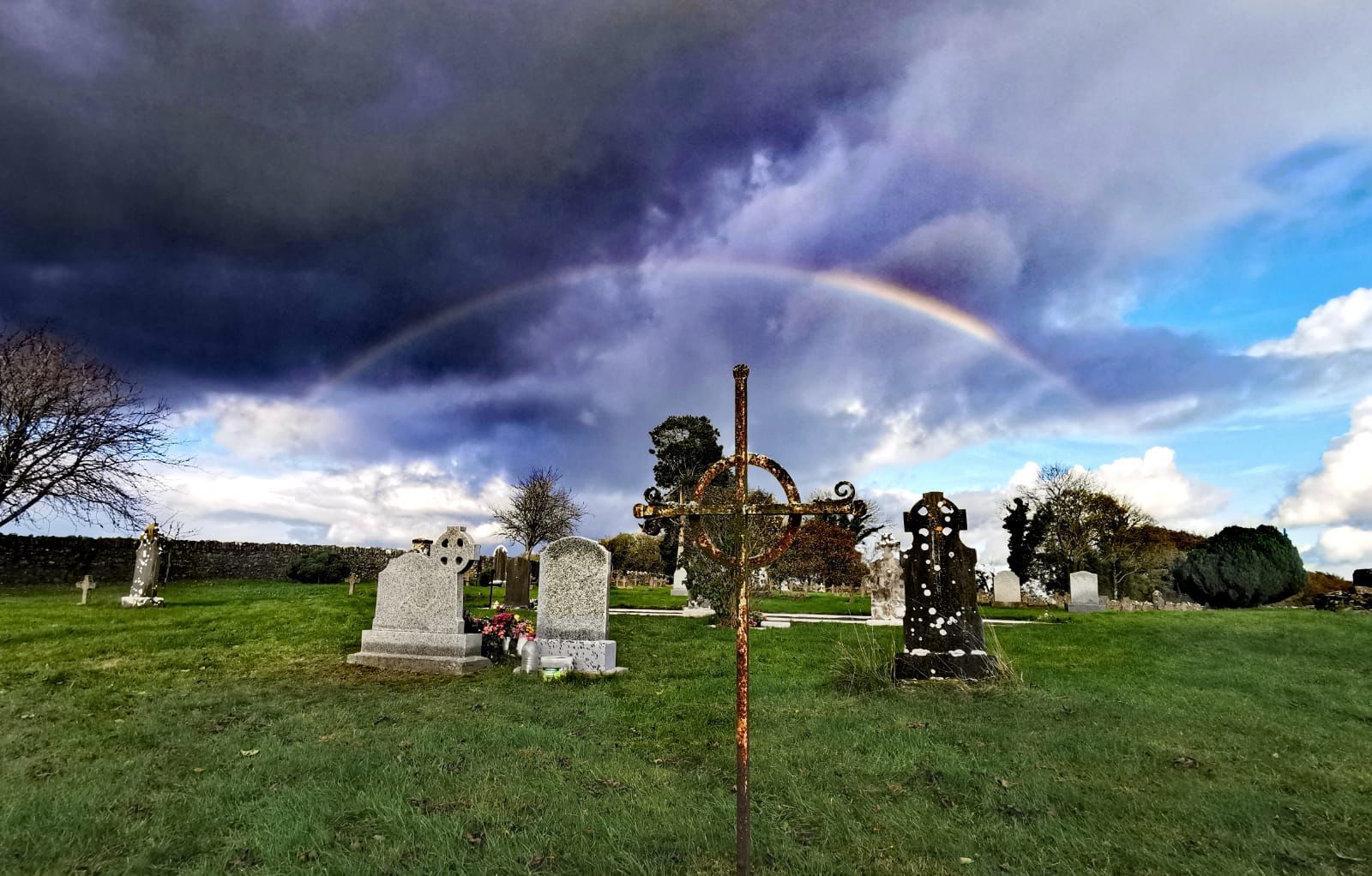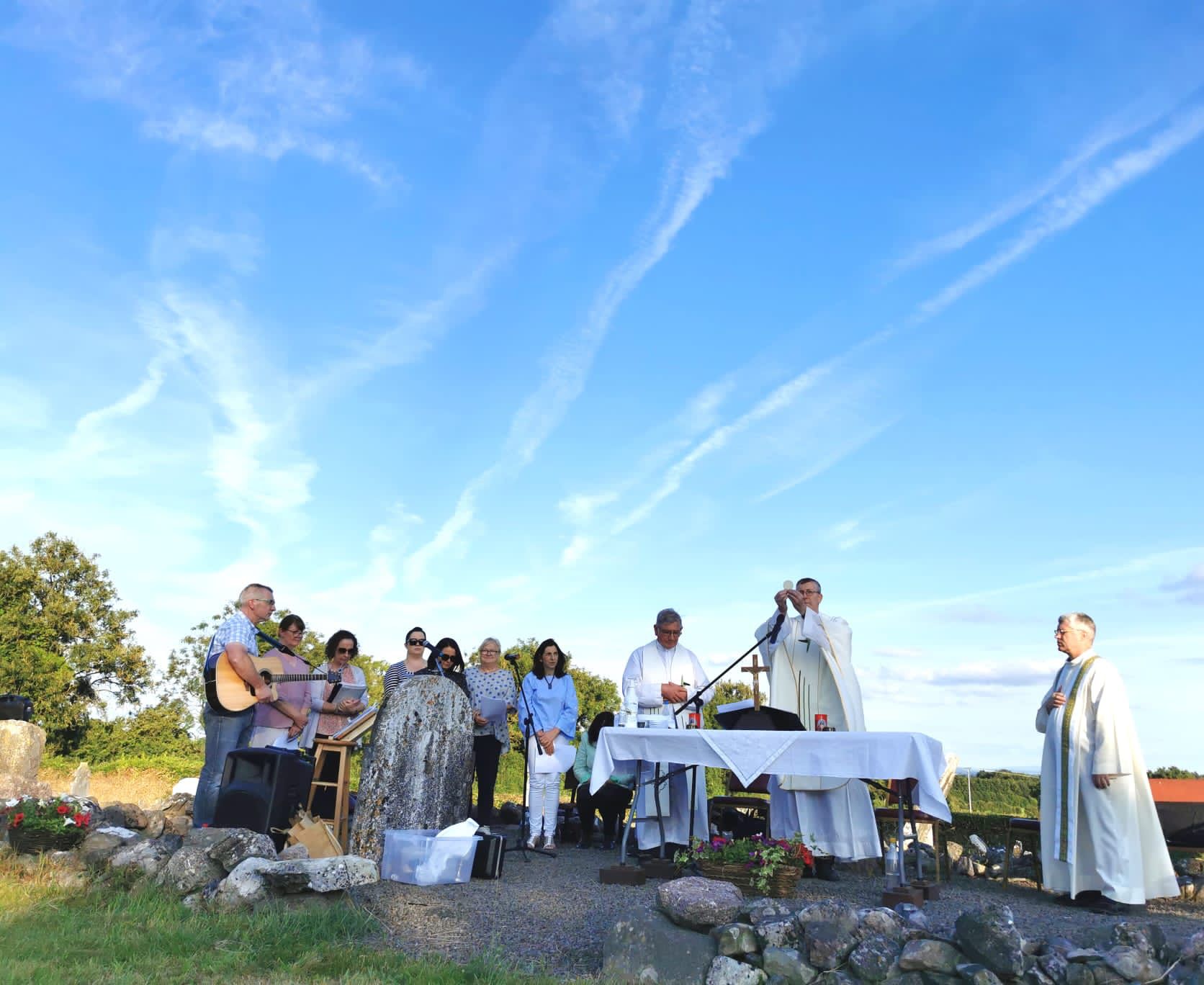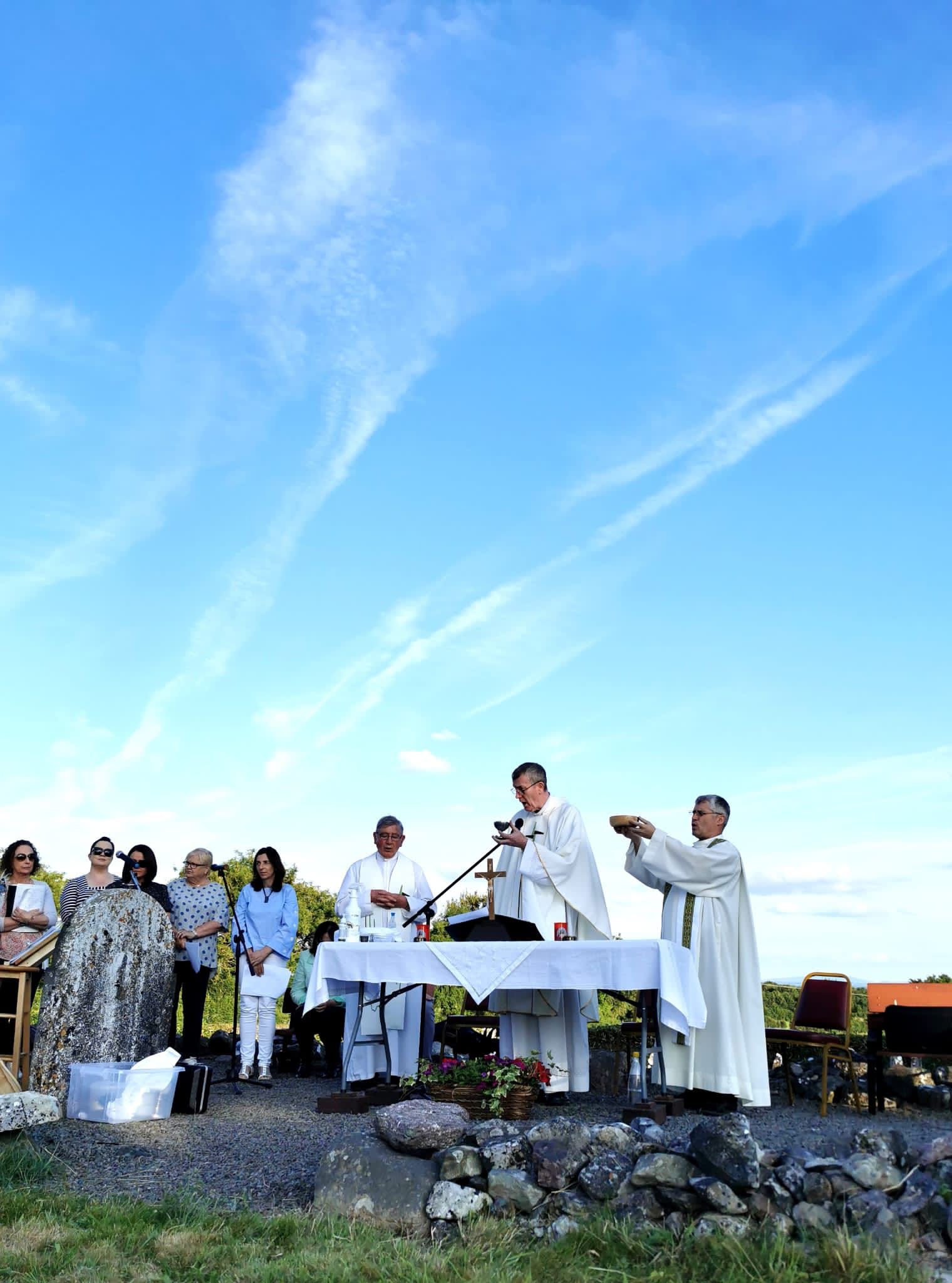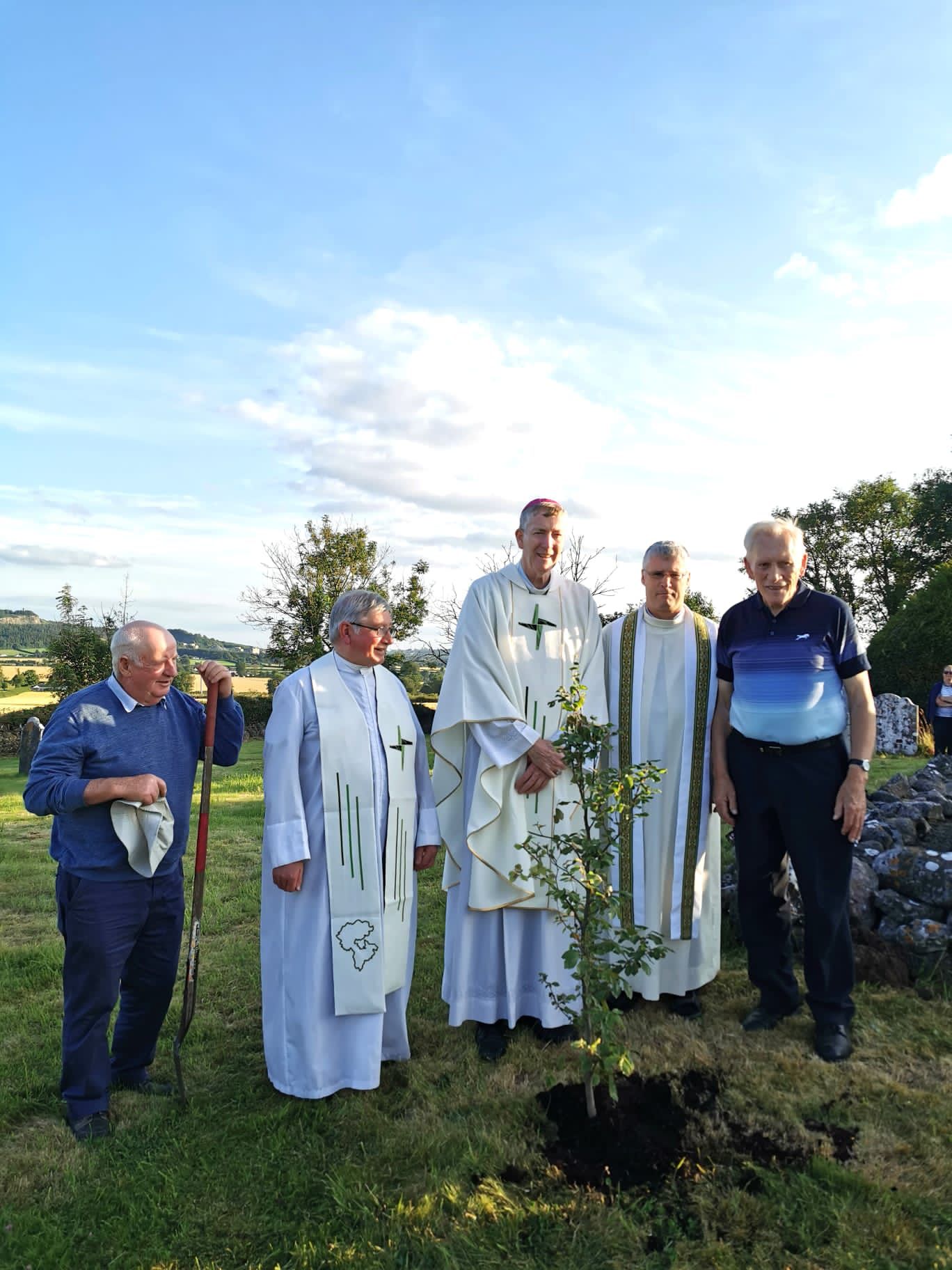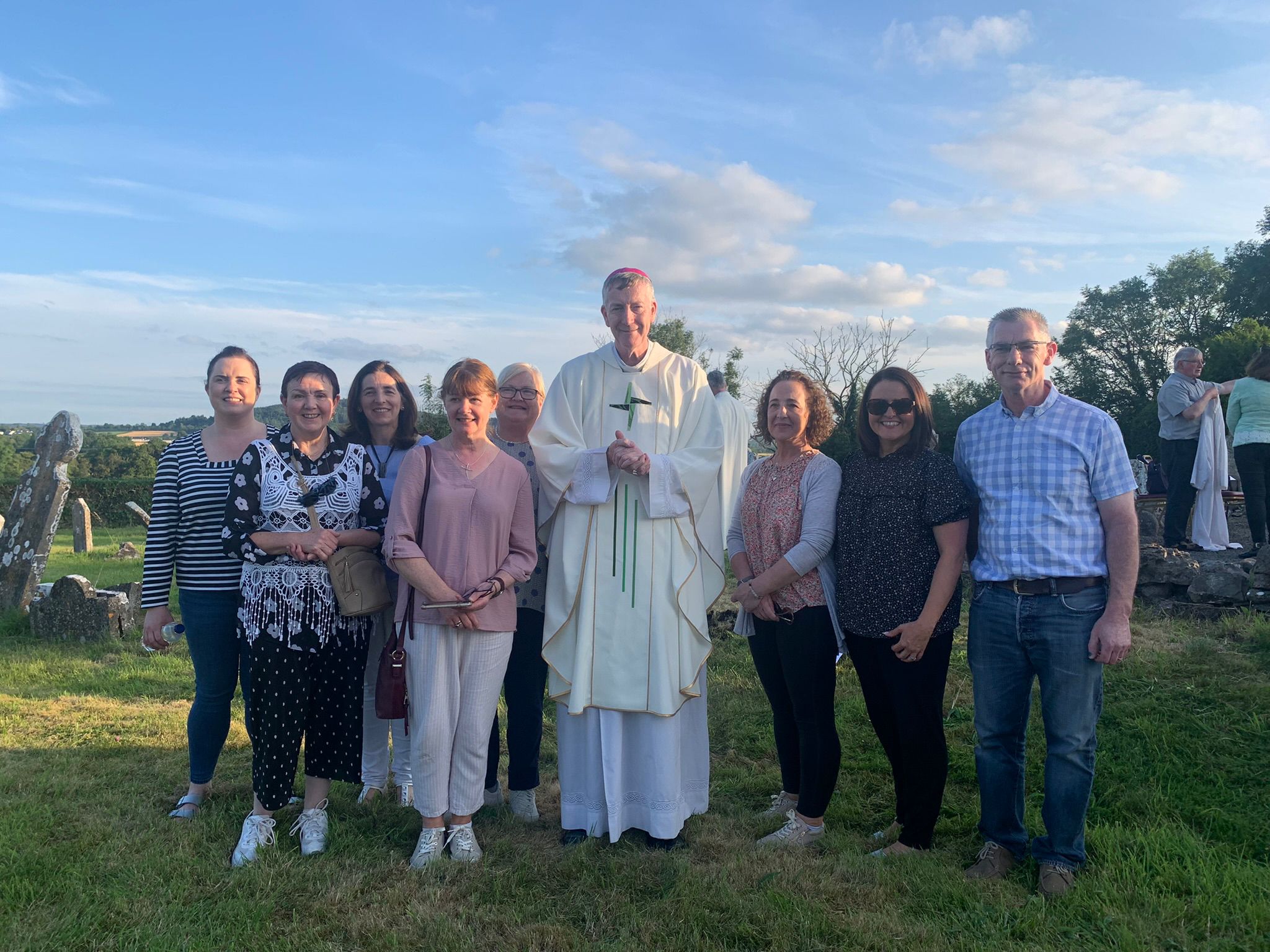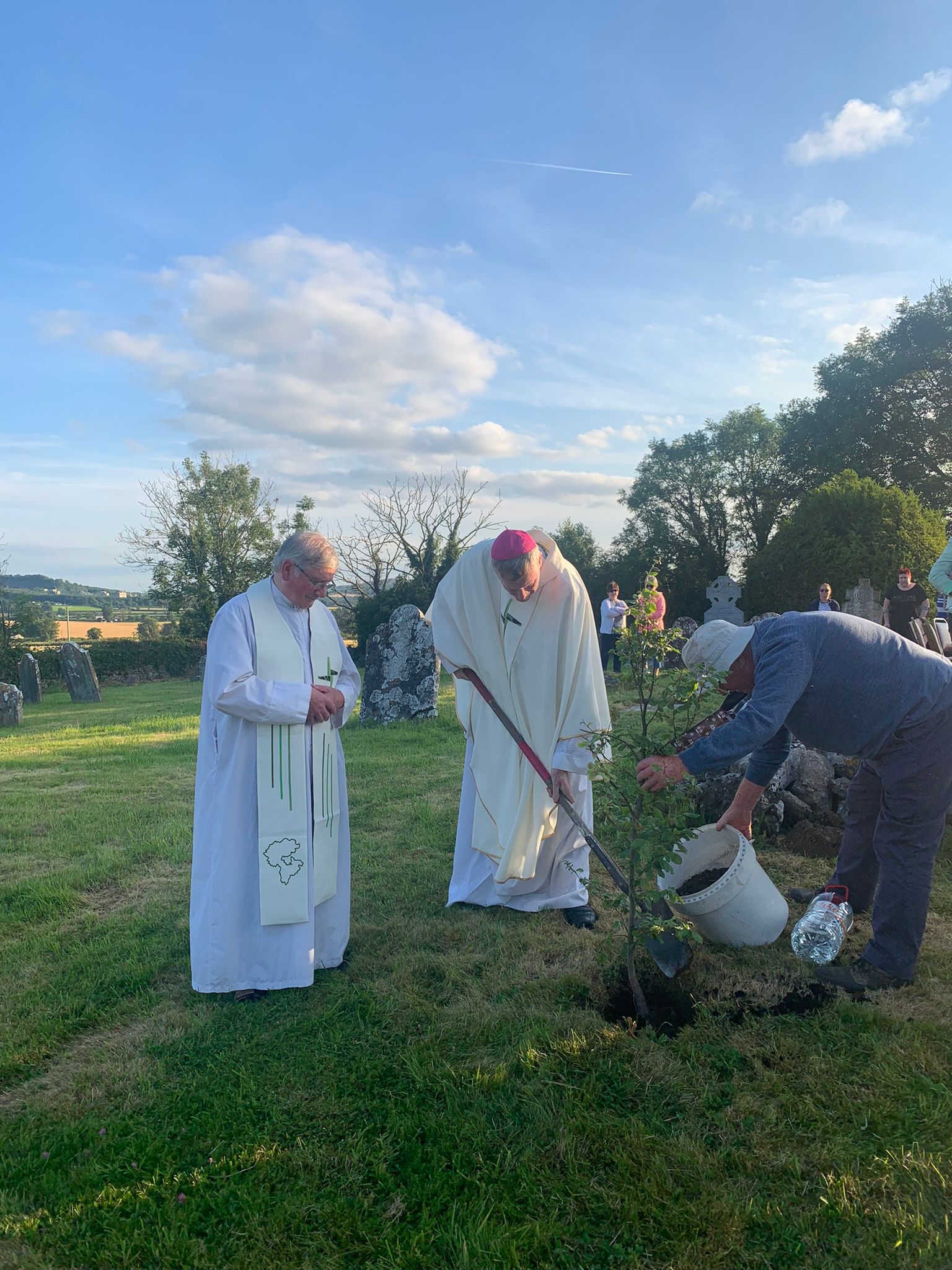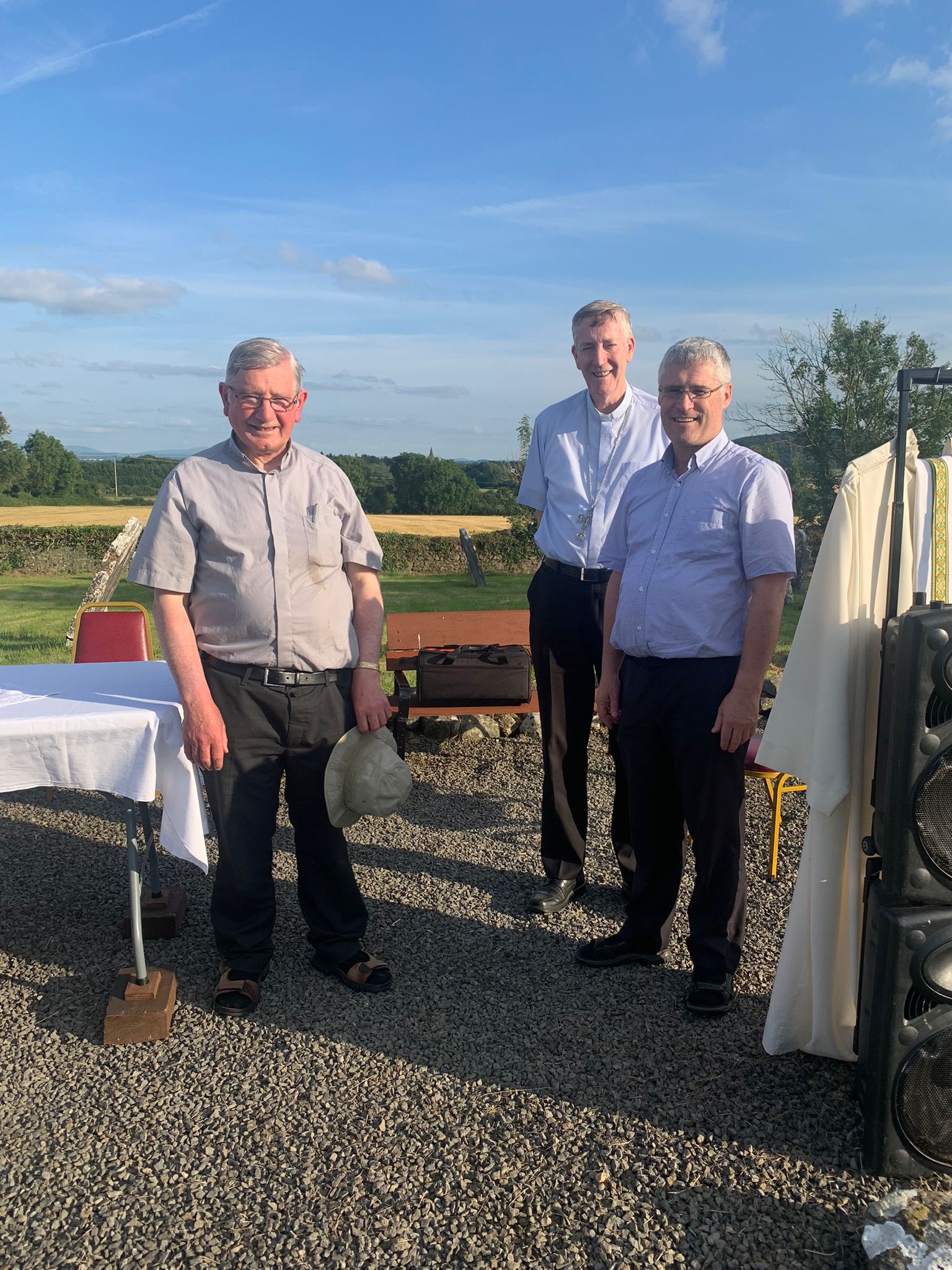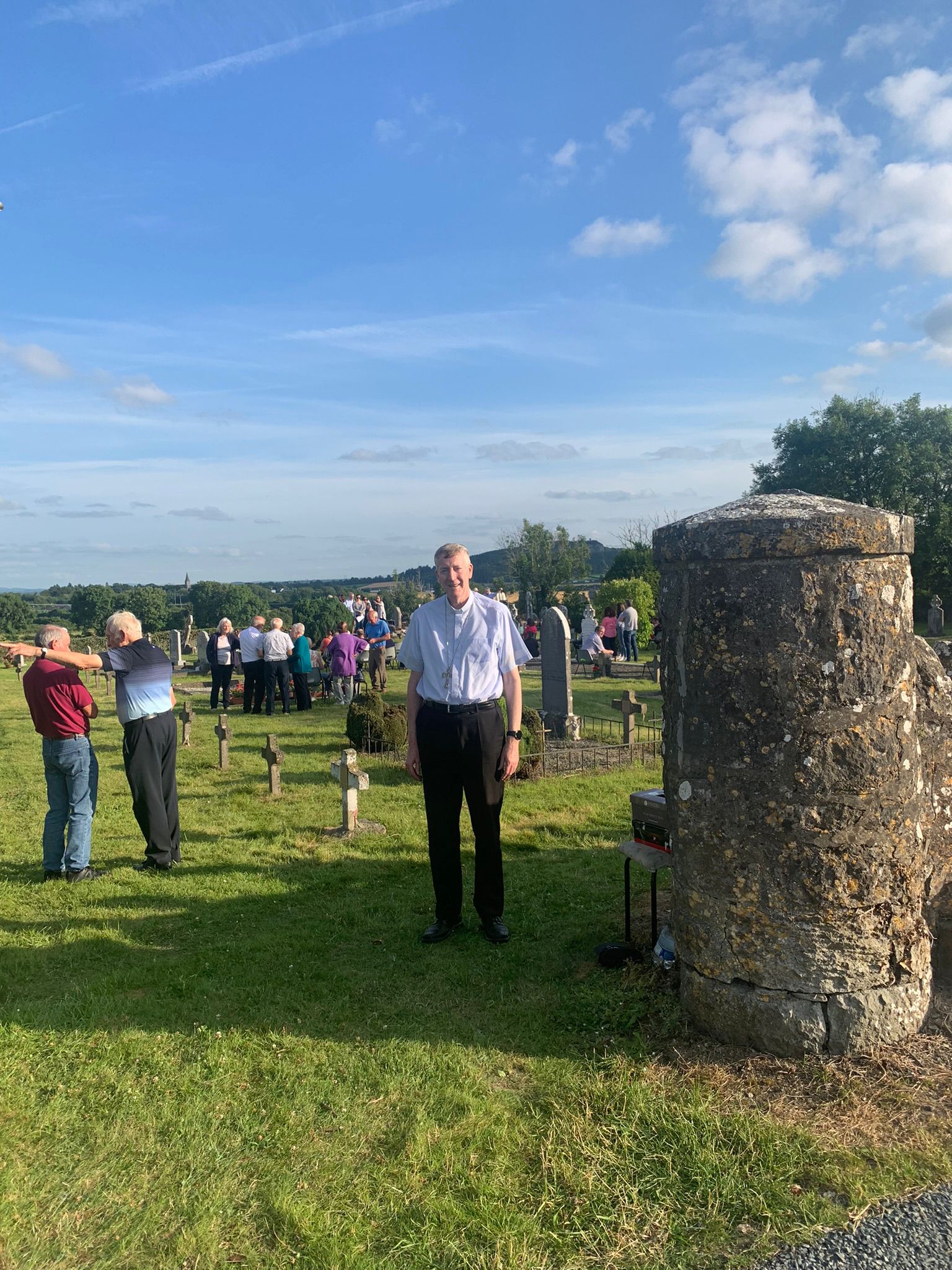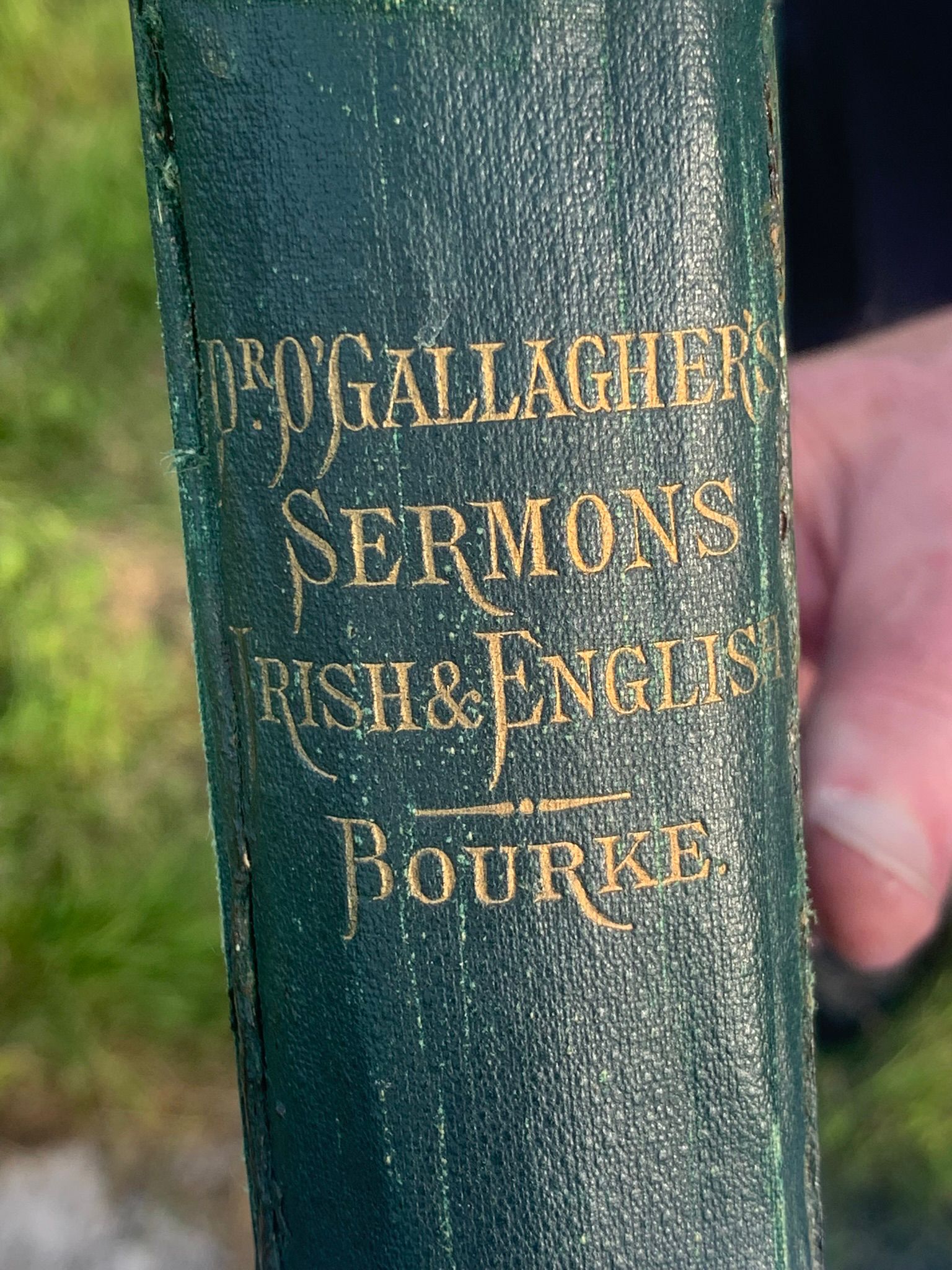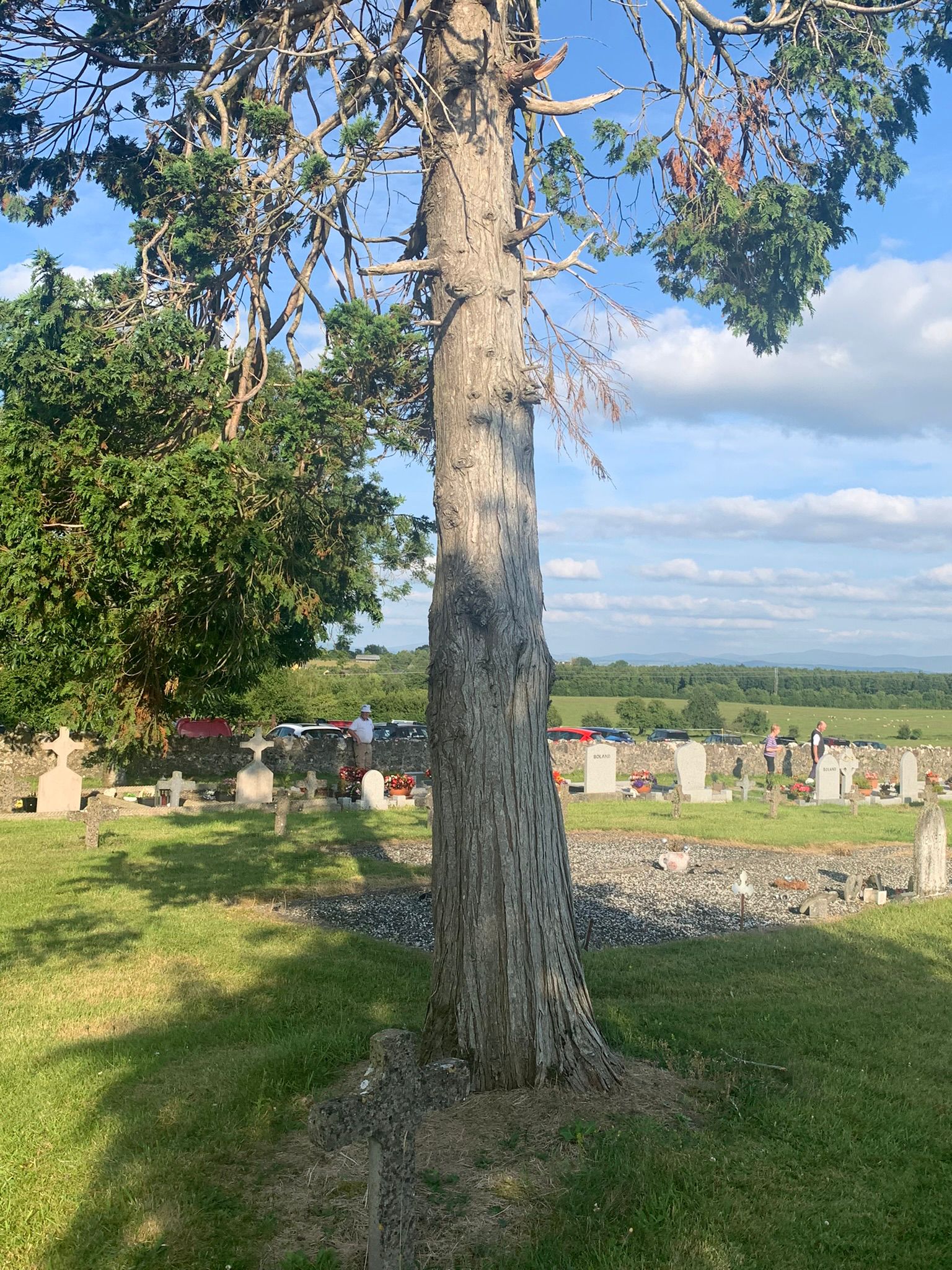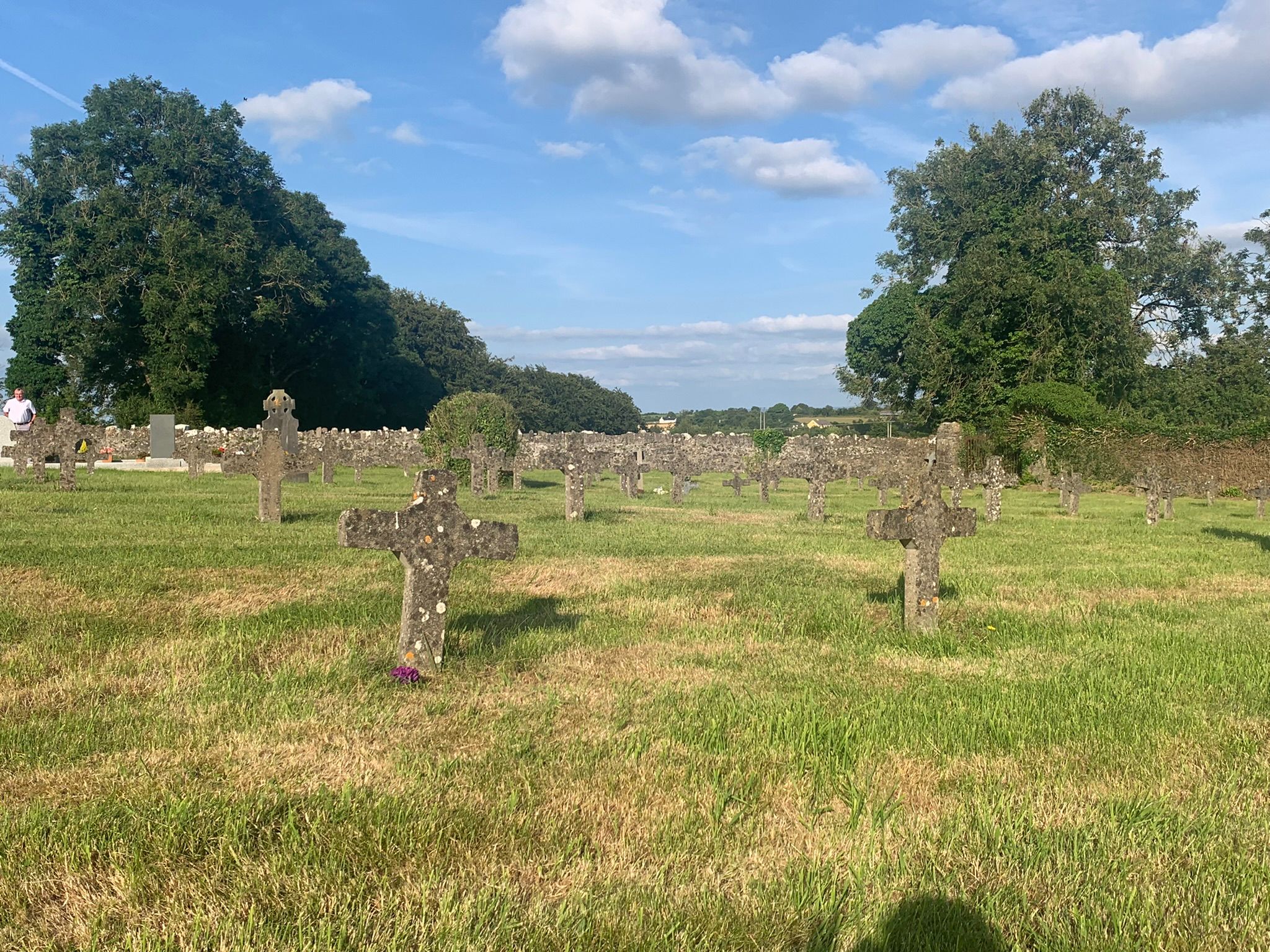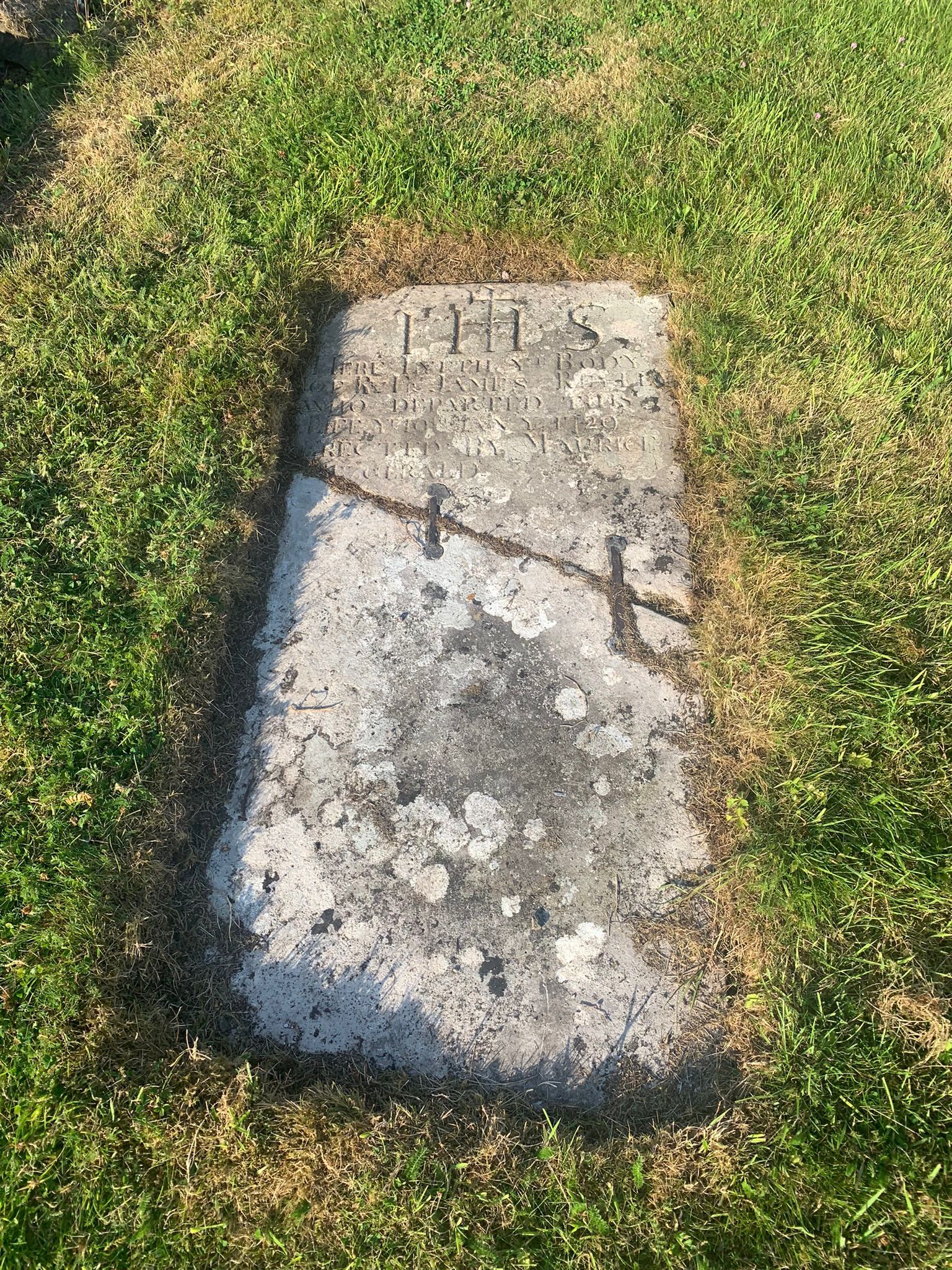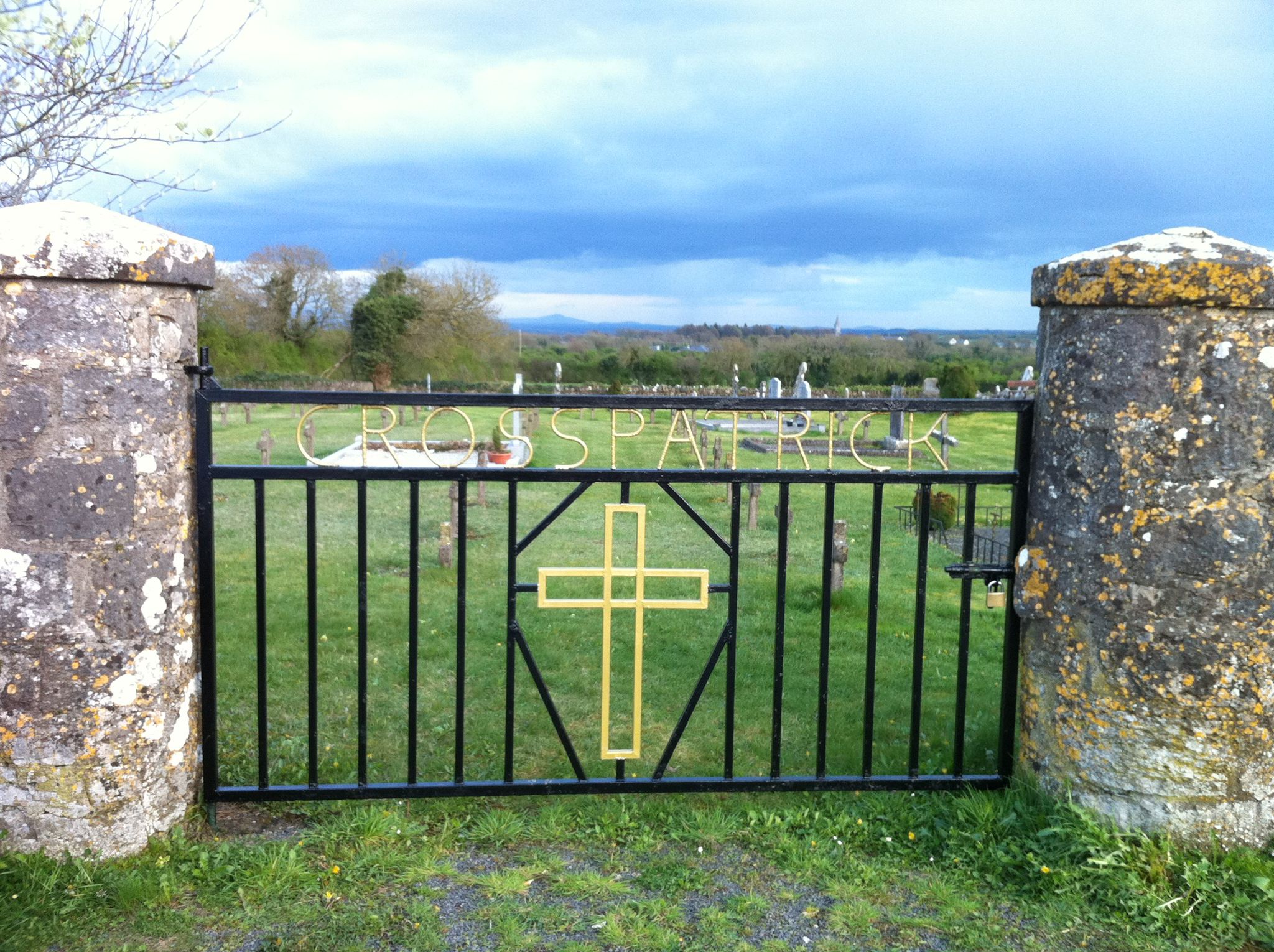Cemetery Mass, Crosspatrick, Allen Parish 15.07.22
Introduction:
It is great to be able to gather, particular after the past two years of serious restrictions on public gatherings in the context of the global pandemic. The pandemic taught all of us the value of time, how we spend time, how we take time, how we make time for those we love. Cross-Patrick Cemetery is a sacred place where we gather to give time to those we have loved in life, but lose in death.
I join you this year honouring one of my predecessors Bishop James Gallagher who was transferred from Raphoe Diocese to Kildare in 1737. He was appointed Bishop of Kildare and Administrator of Leighlin, the dioceses were united in 1678. He died in 1751 and is reputed to be buried here perhaps also alongside some of his immediate predecessors.
I want all of you who gather in Cross-Patrick to be assured that you and those you grieve for this July evening are in our prayers. Let us bless water we will use to bless the graves …
Homily:
Recently I used the phrase in conversation “Cemetery Devotions” and whoever I was chatting with, was surprised at the phrase, and said they never heard it said like that before. We are here in Cross-Patrick, a place chosen by Patrick himself, for ‘Cemetery Devotions’, and our devotion this evening is in the context of the celebration of Mass. Mass is a superb touchstone for us all as we encounter the Risen Christ in Word, in our Gathering, in Eucharist and in the Sending Out.
The Old Testament Book of Wisdom reminds us what we all need to hear this evening: “the souls of the virtuous are in the hands of God”[1]. I love that line tucked in the early part of that reading: “but they are at peace”[2]. It’s all we need to hear.
The psalm is the very same psalm at every Cemetery Mass and it’s the most used psalm at Requiems or Funeral Masses. The Lord is our shepherd indeed. He was with our loved one in their valley of darkness, maybe the only one there, but He was there. And He is here tonight giving each of us comfort. I love that image in the fourth verse of dwelling in the Lord’s house. We may live in Allen, Allenwood, Kilmeague, Robertstown, Milltown, indeed we may live elsewhere, but the only place that matters after this earthly life is God’s house.
St. John reminds us we are called God’s children, allowing us that privilege of “seeing him as he is”[3]. The image of a child is a warm image, we are all someone’s son, someone’s daughter. The pain of those is very real who spend their life searching for such an identity.
Sometimes in my own family, when I do something or say something, my sisters will say to me, “that’s exactly what Dadda would say or do”. Isn’t it strange how we become like those gone before us with very little effort on our part. I know a friend who would complain about his parents doing or saying something, and I hear him doing the very same with his own children! Those buried in these graves are part of all of us and we are all a part of them.
The gospel brings us to the evening time, around this very hour on the road from Jerusalem to Emmaus. It was the first Easter and the disciples were in poor shape. The One they had put their hopes in had gone and in their desolation their heads were down. But of course He walked among them. He lets them tell the story and He fleshes out the different parts. And so often in life, we are slow to believe, it’s too late. But it’s never too late. The doors of all our churches remain open to all. And even more so as we emerge out of lockdown. Please know there is a place for you around the Lord’s Supper table.
Coming here this evening allowed me to do some little research on Bishop James Gallagher. By all accounts he conducted a type of seminary here in the Bog of Allen. It is interesting that his successor James Keeffe would have the vision to begin the building of St. Patrick’s College, Carlow.
Bishop Gallagher was forever on the run, very hard to trust anyone in those harsh Penal days. The story is well told in his time in Donegal visiting the priest in the parish of Ballygarvan, he was due to stay overnight. During the evening a message came from a well to do neighbour, a Catholic, offering the Bishop hospitality. It was thought best not to take up the generous offer. When the Bishop retired to bed that night, he couldn’t sleep and made an effort to leave but the priest held him back – too late, too dark, too dangerous. He went back to bed, but couldn’t sleep. Got up a second time and slipped away. And just in time before the soldiers surrounded the priests house to arrest the Bishop. He had escaped and spent a full year on one of the islands on Lough Erne, writing a volume of Sermons in Irish.
Here in Allen, it is said the Bishop lived in a small hut of mud walls, thatched with straw or rushes, near the bog of Allen. He very much imitated the simplicity of Christ in his life and in his ministry. JKL writing sometime later[4] spoke vividly of the testimony of the locals to the life and fidelity of their Bishop. I quote: “the haunts and retreats frequented by the Bishops of Kildare in the times of persecution are still pointed out by the aged inhabitants of these marshes … ‘there he administered Confirmation’; ‘here he held an assembly of the Clergy’; ‘on that hill he ordained some young priests’ …”[5]. When I think of the sacrifice of those who kept the flame of faith alive in Penal days, huge credit is due to them, as we in our own way struggle at times to keep that flame flickering in a very different world.
I’m told in 1931 there was a very heavy snowfall. The snow in these parts was up to ten feet deep. A woman called Ms. Farrell died in Killeagh, not far from this cemetery. She lived next to the Grand Canal. The local blacksmith, Michael Fitzgerald, at Allen Cross made a sleigh, and with the assistance of a friend walked six miles to an undertaker in Newbridge and got a coffin. They put the coffin on the sleigh and pulled it back to the deceased woman’s house. When they reached the village of Milltown, they joined the Canal and walked back to the woman’s house. Tom Shea and his son Kit met them in Milltown. The following day they brought the remains up to Cross-Patrick and with the help of others dug a snow grave, laying the coffin the grave and covering it with snow. When the snow melted some weeks later, they dug a sand grave and laid Ms. Farrell finally to rest. The story of the ‘snow grave’ is probably not well known, lets remember all those involved in that heroic work during the harshest of snow storms. I thank Tom Shea for putting this bit of history my way.
Our faith doesn’t sweeten the bitterness of death but it reassures of what awaits all of us – our belief in the resurrection. I love that Irish phrase: “Ní imithe uainn atá, ach imithe romhainn” (they are not gone from us, but gone before us). I finish with one of my favourite Ledwidge poem’s ‘A Little Boy in the Morning’:
“He will not come, and still I wait.
He whistles at another gate
Where angels listen. Ah I know
He will not come, yet if I go
How shall I know he did not pass
barefooted in the flowery grass?
The moon leans on one silver horn
Above the silhouettes of morn,
And from their nest-sills finches whistle
Or stooping pluck the downy thistle.
How is the morn so gay and fair
Without his whistling in its air?
The world is calling, I must go.
How shall I know he did not pass
Barefooted in the shining grass?”
May their souls and the souls of all the faithful departed rest in peace. Amen.
[1] Ws 3:1
[2] Ws 3:3
[3] 1Jn3:2
[4] Letter, dated 6th May, 1823
[5] Comerford, Michael, Dioceses of Kildare & Leighlin, Vol. 1, 1883, pg. 78.
